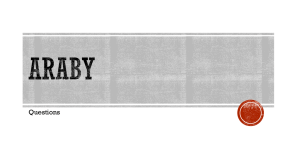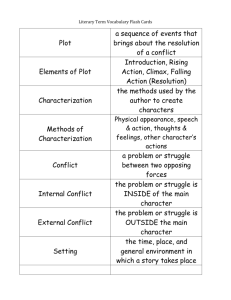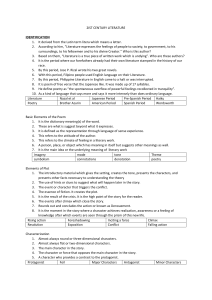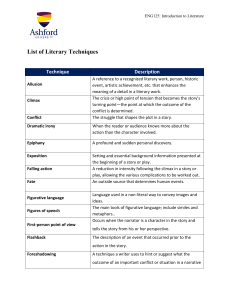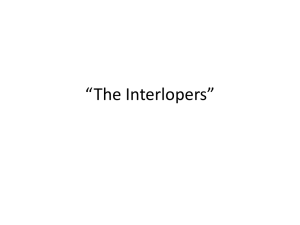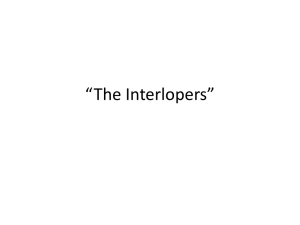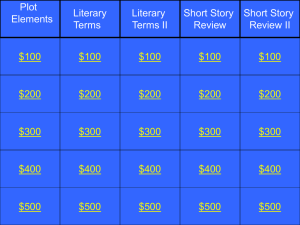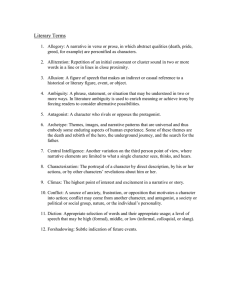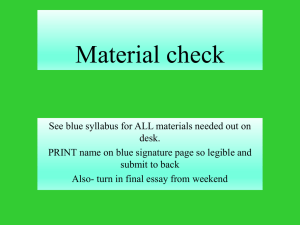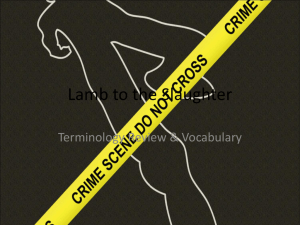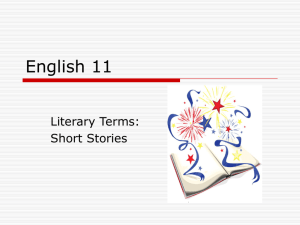The Princess Bride: Literary Terms & Analysis
advertisement
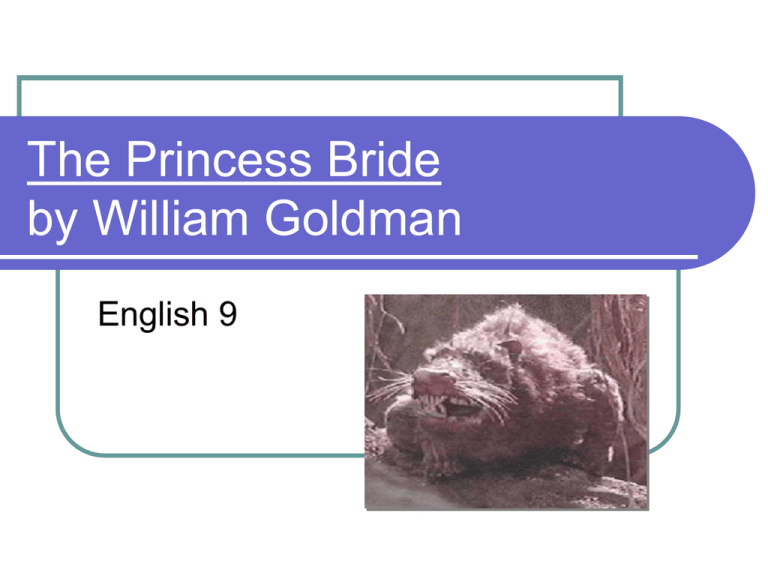
The Princess Bride by William Goldman English 9 Part One: It’s Fake That’s Right! The novel is all made up Nothing is what it seems There was no S. Morgenstern Pretty clever, huh! Why do you think he wrote a story like this? Part Two: Terms Allusion - a reference to a person, place, poem, book, event, etc., which is not part of the story, that the author expects the reader will recognize. Frame Narrative or Frame Story - a story that has another story or stories within it Hero - the central character, usually one who possesses noble qualities such as self-sacrifice, courage, wisdom, etc. Examples: The Canterbury Tales Examples: Tarzan, King Arthur, Frodo. Intrusive Narrator (authorial intrusion)- an omniscient narrator, who frequently interrupts the plot with comments on the story, characters, or life in general. Examples: Tom Jones (18th century British story) More Terms… Motivation - the reasons behind a character’s actions. Satire - using humor to expose something or someone to ridicule. Example: Huckleberry Finn travels down the Mississippi River in order to escape the Widow Douglas, who wants to “sivililize” him. Examples: A Modest Proposal; SNL Willing Suspension of Disbelief - the deliberate putting aside of the audience’s or reader’s critical beliefs in order to accept the unreal world the author creates. Even in the most realistic novels, this technique must be used. Example: Modern readers must accept Hamlet’s father roaming the Earth as a ghost seeking revenge, or the play cannot succeed. Another example is “Spongebob”. Irony When the last thing you think will happen, happens…or the last thing you think would be said is said. Example: The firehouse burned down. Dramatic Irony-the words and actions of the characters, unbeknownst to them, betray the real situation, which the spectators fully realize. Romeo and Juliet Verbal Irony - a discrepancy between what is said and what is really meant; sarcasm. Example: A large man whose nickname is “Tiny.”
